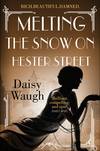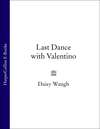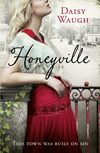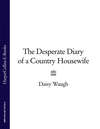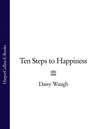Kitabı oku: «Melting the Snow on Hester Street», sayfa 2
3
Three hours later, the Beechams’ famous 17 October Supper Party was in full and boisterous swing. Eleanor’s aquamarine satin sheath dress, which brought out the magical green in her eyes had, indeed, become a little creased. And Eleanor knew quite well that after the third glass of champagne – or was it the fourth? – her face was more than a fraction wilted. But, as she kept reminding herself, it didn’t matter. Not any more. In the softly falling terrace lights, and with the liquor freely flowing, no one was going to notice anyway. Everyone was canned. For the hundredth time that evening, she told herself to relax.
There had been an incident with one of the waitresses shortly before the guests arrived which hadn’t helped to ease her mood. But she really ought to have shaken it off by now. These sort of things happened to movie stars all the time. Thomas Mix found one in his bathtub. Gary Cooper (who lived in the house next door) was constantly encountering them roaming his private grounds. Mary Pickford found one splashing about in her swimming pool. It came with the territory … There were always stories of stray fans slipping through the stars’ careful barricades, and it wasn’t the first time it had happened to Eleanor, either. Perhaps, Eleanor considered, if the wretched girl had been anywhere else, holding anything else, on any night but this one, it would have felt less threatening: simply an amusing story to tell. But Eleanor found her right there in the bedroom – standing, guilty as a thief, at the same dressing table she’d left Max at only half an hour earlier. In the girl’s hand was a heavy gold photograph frame; and in her eyes – Eleanor shuddered – dark pools of emotion and fear: all the madness of a fan obsessed. Eleanor had never seen it so close, and it frightened her. She had shouted for help, and within moments, Joseph the houseman had been there, standing beside her, and then, just a little later, Max had come, too. The wretched girl, sobbing uncontrollably, clutching Eleanor’s precious gold photograph frame until it was taken from her hand, had been escorted safely from the property.
It was nothing. A hazard of the job. Poor girl … Max had brushed it off; told Eleanor not to fuss. She should take comfort, he teased, considering some of the notices for her last picture, that there were still fans out there who cared enough to bother. And he was right of course. These things happened.
In the meantime here she sat, the Queen of her own fairy tale. She should try to enjoy it. The evening’s guests were seated at the long banquet table before her, deep in noisy conversation, and from what she could tell, they were happy to be there. The freshly boiled lobster had been eaten and carried away, and so, by now, had all remnants of the perfectly judged, entirely exquisite Beecham Supper Party feast … She could hear the sound of the jazz band filtering delightfully through the open windows. Soon, after coffee, and more drinking, she would slip quietly inside and ask them to snazz up the tempo, and there would be dancing. Everything was just as it was supposed to be. Everything was Lovely.
Eleanor had decided, finally, to put Marion in place of honour, beside clever, gently spoken Irving Thalberg, whom Marion knew well. She had placed herself on Irving’s other side. Not because she liked him (although it happened that she did), but because, as chief executive producer at MGM, the largest and most profitable studio in Hollywood, he was the most powerful man at the table, if not the industry. And since her seven-year contract with the almost as large, but not quite so magnificent, Lionsfiel Pictures was shortly up for renewal, it seemed like a good time to foster relationships with the alternatives.
On her right side she put Douglas Fairbanks, who was tiresome in all sorts of ways, but a big star – and he would have been offended if she hadn’t. Max, far away at the other end of the table, had Gloria Swanson on his right side, for the same reason.
But he must have switched round the name cards on his left, because where Irving’s wife, Norma, was meant to be sitting, there sat none other than Blanche Williams, chief feature writer for Photoplay magazine.
Eleanor knew, because Butch Menken had told her; and Butch knew because … Butch made it his business to know everything. Also because he knew a German actress who lived in the same block, and the German actress had spotted Max going in and out of Blanche Williams’s apartment on numerous occasions. So Eleanor knew. Or she almost knew. And she had known (or almost known) for a couple of years now.
Did Max know she knew? Did he even care? She could never be sure, not about anything, any more, let alone who knew what about anyone else … Christ.
She could leave him, of course. And maybe one day she would. But not today … Eleanor needed to think of something else.
She wondered if Irving Thalberg was aware that her deal with Lionsfiel was up for renewal. Probably not. Should she tell him? Or would it be just too awkward? And if he already knew, would he perhaps suggest she came across to MGM?
Of course he wouldn’t.
Why would he do that? Why would he do that? Perhaps she should boast to him about the fan she’d only just encountered in her own bedroom? He might be impressed. He might even think – Eleanor pinched herself. She was drunk. Any minute now, if she wasn’t careful, she was going to burst into tears.
A passing waiter refilled her glass. She swallowed it back without tasting it, fixed a blank smile to her beautiful, full lips, and allowed her gaze to travel down the table. Stars, stars – and more stars … Buster Keaton and Natalie Talmadge … Gary Cooper from just next door, John Gilbert, Greta Garbo, Charlie Chaplin, Cecil DeMille … and Mary Pickford, of course, sitting beside her husband, Douglas Fairbanks, because tiresome Douglas would never have it any other way … And sprinkled between the stars were the others: the studio executives, the producers, the writers; all the big cheeses who helped to make Hollywood the money factory it had now become. Yes, Eleanor reassured herself once again, it was a good crowd. She and Max could certainly pull them in …
Everything was just fine.
… Were the flags hanging too low, so close to the candlelight …?
Concentrate.
Max was – was he? – was he running a finger along Blanche Williams’s cheek? He should stop it! She should put a stop—
Concentrate.
Dougie Fairbanks was talking to her. He was saying something as if it were quite fascinating … Someone’s chauffeur had made a killing on the stock market … She hardly needed to listen. These days, everyone knew someone who knew a chauffeur who’d made a killing. In fact conversation around Eleanor’s star-studded banqueting table wasn’t much different from conversation at a million dining tables across America that night. There was only one thing anyone ever seemed to want to talk about any more: who’d made how much on what stock and at what margin … the increase in values of Bethlehem Steel versus General Motors, National Waterworks versus United Founders … The stock market was everyone’s obsession.
Added to which, it happened that the day of the Beecham Supper Party, 17 October 1929, had been a reassuringly good day on Wall Street: an excellent day, after a disconcertingly bad one, at the end of a record-breaking summer. There had been a couple of serious wobbles at the beginning of the month, ‘just to keep things exciting’, Max and his friends confidently agreed, but that morning, newspapers had been filled with the comforting forecasts of the experts:
‘Stock prices,’ declared Professor Fisher of the University of Yale, ‘look as if they have reached a permanently high plateau.’ His respected voice was just one of a chorus of bullish experts, academics, business moguls and financiers, and the markets had taken comfort. Up, up and up went the stock prices again, back on their apparently relentless rise. It meant that anyone who’d put in a call to their brokers before sitting down to dinner – and that included most of Eleanor’s guests and Eleanor’s husband, too – would be wanting to chew over their successes this evening.
But not Eleanor. On this particular night, 17 October, with fifty-one guests to worry about, and a dipping arc light, and Marion Davies, and the flags, and bloody Max, kissing her so tenderly one minute that her heart swelled with hope, and talking so animatedly with Blanche Williams the next, Eleanor was finding the usual subject less than compelling.
‘Well that’s just too fantastic, Dougie,’ she said blandly. ‘He must be one happy chauffeur.’
‘Isn’t it terrific!’ Douglas Fairbanks shouted. Because Douglas always shouted. Because he hated not to be the centre of attention. ‘And isn’t that such a terrific feeling!’ He turned to the rest of the table: ‘Doesn’t everyone think? Don’t you think so, Von Stroheim? Isn’t it great to know we live in a country where your average Joe can turn himself into a millionaire just by … knowing how to do it? Mr So-and-So from Nowheres-Ville can make a million! Just like that! Just like you and me! That’s why I love America!’ He thumped the table with such emphasis it made Eleanor jump. ‘That’s why I’m proud to be an American! Charlie-boy, c’mon. Admit it!’ he shouted. ‘You heard Professor What-Not, Tuesday. You heard what the man said! Are you telling me you know better than the professor from Yale?’
But on this, as Douglas knew well, his friend Charlie Chaplin would never agree with him, nor with Professor What-Not from Yale. Charlie – an Englishman, in any case – was, that night, the solitary voice of caution among them. ‘You know exactly what I think, Dougie,’ Charlie said wearily. He’d said it many times before. ‘You got people making money out of money that never even existed in the first place! It’s a trick of the light, I keep telling you. It’s a whole pile of nothing, built on a mountain of Zilch. It can’t go on.’
‘Aw, Charlie!’ groaned Marion. ‘Don’t go getting started on that again! … J-just nobody wants to hear it!’
Charlie smiled at her. Shrugged. ‘Dougie asked me,’ he said. ‘In any case, I’m only passing on what I’ve been told by the experts …’
‘By ONE expert!’ Douglas Fairbanks shouted. ‘And you know, you keep on about your “expert” like the guy’s some kind of oracle … but he’s a solitary, single voice, Charlie-boy. There’s no one out there supporting him …’
‘There’s going to be a crash.’ Charlie shrugged. ‘It’s what he told me. And it’s going to be catastrophic. It’s only a matter of when … Personally – as you know, Dougie – I’m out.’ He looked up and down the table. ‘I’m guessing I must be the only person round this table without a stock to my name. Ha! Maybe I’m the only person in the entire business!’
‘Butch Menken’s sold out,’ someone commented. Not Eleanor.
‘Butch sold up, did he?’ Charlie said. He looked at Mary Pickford, whose voice had provided the information. ‘When, I wonder? Do you know?’
‘Oh, a couple of weeks back. I considered following him …’ She smiled. ‘Where Butch Menken leads …’ she said.
‘… We all should follow,’ Charlie finished for her wryly. ‘Well. He’s a smart man.’ Eleanor said nothing. She examined the silver-plated dessert fork in her hand, didn’t glance up. There was a tiny lull, hardly perceptible – because of the history: Butch, Max and Eleanor used to be thicker than thieves. It was quickly, tactfully, broken by Marion.
‘Made a killing though, dintcha, Charlie?’ she called out. ‘Every s-single stock he owned. Sold the lot. Pretty much, huh? Imagine it! And now he’s sore, because if he’d stayed in just one more day, or two more days, he would have made another k-killing, same as all the rest of us! Isn’t it so, Charlie!’
‘All I’m saying …’ Charlie paused, sighed, and apparently thought better of continuing. ‘… Just don’t come crying to me when all the money’s gone …’
‘Ha! It wont be for m-money that M-Marion comes crying to you, Charlie boy …’ declared Douglas.
He looked around to collect the laughter – but was met instead with a brief, shocked silence. His wife, beside him, put a quietening hand on his shoulder. ‘Isn’t that right, Mary?’ he said to her weakly.
He was drunk. Clearly. And a fool. Everybody knew it. Even so … Eleanor glanced nervously at Marion.
‘Such beautiful candelabra,’ Mary Pickford said smoothly, in her sweet, steely voice. ‘Tell me, Eleanor, did you pick them up in Europe?’
Eleanor turned to her gratefully. She was about to say yes, to tell Mary a touching story of how she’d discovered them – all eighteen of them – covered in dust in a little antique market on a side street in Roma—
‘Oh, they’re terrific little antiques!’ broke in Douglas. ‘They remind me of a funny incident a few years ago …’
Eleanor longed to lean across and apologize to Marion, but so long as the stupid shoyte continued to jabber at her, it seemed quite impossible.
‘… I had the candelabra in the one hand and there was I,’ he bellowed, ‘a hundred foot up on the rigging, the whole damn thing swaying. Next thing – WHOOSH! … The entire set’s up in flames and I’m thinking to myself – I kid you not – I AM GOING TO DIE! Right here, right now. And I’m dressed as Robin Hood of Sherwood Forest!’
Eleanor, not really listening, offered him only the wannest of smiles.
‘Imagine me, El!’ he cried stubbornly, determined to get a better response, ‘I’m a hundred foot in the air …’ He stood up, grasping the nearest candelabra as he rose, his infuriating, actorish laughter filling the air. He held the flames aloft, waving them this way and that –
‘… I’m holding onto that rigging for grim death! …’
Eleanor watched him. Felt the cold, wet fear crawling slowly over her skin. Felt her lungs tighten, making it hard for her to breath.
She saw only the tip of the candle, the flame, and the tip of the flag …
‘… Next thing, WHOOSH! …’ Douglas shouted.
She sat quite still as he and the light swayed this way and that, from side to side and back again, flickering flame against dainty, deadly silken flag. She opened her mouth to protest …
‘HA HA HA! Can you imagine it, El?’
But she couldn’t hear him any more.
‘There I am. A man in tights!’
Her lungs had filled …
‘In tights, I tell you!’ shouted Douglas, laughing and swaying. She couldn’t breathe …
‘A man in tights! HA HA HA!’
There was a taste of smoke in her mouth, in her throat, and she could feel it … blackening her insides as it burned its path through her chest, scorching, melting, choking –
‘WHOOSH! WHOOSH! FIRE! HA HA!’
And then, somehow, Max was beside her, taking the candelabra from Dougie’s fist, placing it back on the table. ‘Eleanor,’ he said loud and clear, his strong hand on her shoulder … ‘Honey. I think it’s time we were on that dance floor, don’t you? They got the best Charleston playing … can you hear it? … It’s got my feet tip-tapping like nothing else …’
Eleanor smiled. Quickly, gratefully, feeling his touch, willing herself to recover. ‘I can hear it!’ she said, in the mellifluous voice she could use. ‘It’s too perfect! Let’s not sit a moment longer!’ But she was shaking. Max could feel it. He could feel her shoulder convulsing beneath his hand.
He bent across the table and kissed her. There and then. In front of everyone. Someone sighed, ‘Awwww …’, possibly Marion. The kiss lasted a second or two longer than expected, giving Eleanor time to collect herself. Douglas Fairbanks, observing it disconsolately, leaned down to Mary Pickford and kissed her on the lips, too.
‘Mary, my darling wife, I adore you!’ he cried.
‘Oh, for crying out l-loud, Dougie!’ Marion said. ‘P-pipe down for once in your life, why dontcha?’
And then Max and Eleanor pulled apart, Eleanor smiling at her husband. She stood up. ‘I hesitate to imagine what you’ve been discussing at this end of the table,’ Max said to everyone, but looking only at his wife. ‘I’m afraid we’ve been talking nothing but Investment Trusts, down our end …’
‘Eleanor, darling, you can’t even imagine how dull we’ve been!’ drawled Gloria Swanson.
‘Humblest apologies, Gloria,’ Max flashed her a smile. ‘We’ll do better next year, I promise.’
‘Except of course, if we’re to believe Charlie Chaplin,’ Eleanor said, with her lovely light smile, her beautiful soft voice, flirtatious and humouring to everyone around, ‘we shall all be in the poorhouse next year, anyway. There won’t be any parties!’
There followed plenty of laughter, and the scraping of chairs: chairs which, had Douglas bothered to look at them closely, he might have noticed were as familiar as the terrific little antique candelabra, and the terrific banqueting table, too. Every scrap was due to be returned to the studio props department first thing in the morning.
‘No more dullness!’ declared Max, ‘or Gloria Swanson might go home in a sulk. And none of us wants that! It’s a party, for God’s sakes. Added to which – except for Charlie – we all made a fortune today!’
‘God Bless America!’ cried Douglas Fairbanks.
Max ignored him. ‘Let’s dance!’ he commanded. And for a brief, uplifting moment the brilliant director, handsome as the devil himself, and his dazzling movie-star wife, were united again; and they were happy. He squeezed her hand and led her across their nautically themed, Italianate terrace, through the sweet-smelling hallway decked in blue and white lilies, onto the centre of the dance floor … And though they hardly noticed it, alone in their fragile cocoon, the cream of America’s fame and beauty followed close behind …
Nobody talked about Investment Trusts for the rest of the evening. And they danced until five in the morning.
4
Too often, in a soured marriage, such uplifting moments do more harm than good, and only serve to make the thud of the landing more painful.
Max was gone by the time the maid came in with Eleanor’s tea the next day. It arrived on a tray at eleven thirty, with the usual glass of freshly squeezed lemon juice, unsweetened, the usual small pile of pre-selected mail; and a small, square, leather jewel box. She took a gulp of the juice. Shuddered. And opened the box.
Every year, on the morning after the party, he gave her something precious. This – a large ruby pendant in the shape of a heart – was larger and more precious than last year’s jewel; she imagined because of their recent successes on the stock market. And beautiful, too. No doubt about that. Max had excellent taste. She shuddered once again as the last of the juice went down, laid the ruby heart back in its box, set it aside. She could hardly bring herself to touch it. Why a heart, of all things? A heart – how absurd! She wondered – what did he give to Blanche? A ruby pendant in the shape of a goddamn putz?
She laughed to herself, though she didn’t find it funny, and looked about for the accompanying envelope. There was always an envelope. She wished she could ignore it, simply not open it, because what could he say that would ever make it all right again? What could he say that wouldn’t hurt?
Darling,
Another wonderful night!
Enjoy your morning. You certainly earned it.
Your ever-loving,
Max
She put the letter down. Ever-loving. Indeed. Had he forgotten what it was all for? This night of nights? He never mentioned it. Never said a word … Gosh, her head was throbbing so – she must have drunk more than she realized.
She could hear the people downstairs, still clearing away the residue of the party. If she stayed up here long enough, as she fully intended, there’d be no evidence of the party at all by the time she went down there. The bunting, the flowers – the eighteen candelabra, the silver-threaded linen table cloth, the banqueting table, too – all of it borrowed, all of it gone. And she could forget about it until next year came round again. If it ever did.
She wallowed, briefly, in the pleasure of not having to get out of bed. Her last picture only wrapped at the weekend – so she’d enjoyed a few days to herself. And she knew well to treasure them. In fact … she glanced at the post on her tray and saw, with a familiar twist of anxiety, a familiar-looking package tucked away at the bottom of the pile.
Already, then. That was too bad.
There would be a one-page synopsis at the top, first of the plot, and then of her character’s part in it. And through the following eighty-odd pages of film script, her designated role in whatever movie had been chosen for her would have been underlined. And there it would be. No message, no discussion. Just a whole lot of new lines to be learned. And a reminder to Eleanor that, though she may be a star in Main Street America, not to mention in the hearts of the odd stray, crazy fan, at Lionsfiel Pictures she was only an employee – a single, shiny cog in a very large, very shiny machine. It was how the system worked. She did as she was told. They paid her handsomely. Eleanor had learned long ago that you could never win against the might of the Studio.
And no matter what, no matter how good she was, one day, it would surely happen, because one day it happened to them all – and to the women sooner than the men. One fine morning Eleanor would open up that familiar-looking package, delivered to her by her maid on her sunny breakfast tray, and discover that her moment in the limelight was passed. The screenplay’s leading role would not be underlined for her, having been underlined for somebody else – somebody younger, fresher, more beautiful, more alluring, better … It was a morning every contract movie star learned to dread.
Eleanor was – how old? She’d lied about it so often, she honestly didn’t know any more. What did it matter? She still looked young. They could make her look young: with the best flat lighting, she didn’t look a day over twenty-five.
There was absolutely nothing to worry about.
Even so, she chose not to open the package. Not just yet. Instead she leaned back against her lovely plumped-up pillows, on her magnificent, giant bed, in her beautiful sun-filled bedroom; sipped the tea which her maid had delivered, and mulled over the events of the previous evening.
Max was quite right about the party’s success. Except for the unpleasant interlude with Dougie – Dougie, of all people! – and then the dreadful moment with the candelabra, it had been a splendid night: better than previous years, for all sorts of reasons, not least the unexpected presence of Marion Davies. Which was quite a coup, whatever way you looked at it.
Not just a coup: a pleasure.
Marion had pulled Eleanor aside after dinner, pulled her right off the dance floor, thrust a cocktail glass into her hand, clinked their two glasses together, winked at her. And downed her drink in one. ‘That was a lovely thing you did b-back then,’ she said, wiping her mouth with the back of her hand.
‘It was?’ Eleanor was confused. She hadn’t done anything. ‘W-what you said to Dougie …’
‘But I didn’t! I didn’t say anything!’
‘I mean to say, the way you looked at him. The way you refused to laugh.’
‘Oh! But I wanted to do so much more! Only I wasn’t sure if you had even heard him, and then I thought it was better not to fuss – I am so sorry, Marion. I can’t apologize enough …’
‘You m-made him feel like a sap.’
‘You think so?’
‘Ha!’
There was a long pause, a peculiar pause, as if Marion were on the point of saying something else, something terribly important. But then, at the last second, she seemed to balk at it. ‘… I just wanted to tell you, th-thank you,’ she said instead. ‘That’s all. And I was thinking. Well, I was thinking it anyway. But I wanted to ask you up to San Simeon. Would you come to San Simeon if I asked?’
‘Of course!’ Eleanor had replied. ‘We would love that, Marion.’
‘Next week or something,’ she mumbled. ‘Real soon. I’ll fix it up for the week after next. Are you free?’
‘Well …’ Eleanor laughed. ‘Absolutely. We’re free. We’ve both just wrapped.’
‘I know you just wrapped.’ Marion winked at her. ‘It’s too perfect, isn’t it? Next Monday then. How about it? I’ll get a good crowd up, I promise. And I’ll send you all the stuff you need. Tickets and so on … Don’t worry about any of it.’
‘Next Monday … Max will be delighted.’ And then, suddenly, with the smallest hiccup, Marion had lurched forward and enfolded Eleanor in the tightest, warmest embrace. It lasted several seconds. She rested her head on Eleanor’s shoulder, squeezed her, clung to her and then, just as abruptly, released her and without looking at Eleanor again, quickly swung away.
It was, Eleanor decided, looking back, a most peculiar moment and, because of the warmth, one of the high points of her evening. Marion had mentioned the invitation to San Simeon again as she was leaving. She would send a car round with the train tickets later on in the week. So maybe, Eleanor thought – maybe she actually meant it?
Other than that, Marion had kept herself perfectly busy, of course: smooched half the night with Charlie Chaplin, until Charlie spotted the little Von Stroheim protégée, barely in her teens, poor little thing …
She’d danced with Gary Cooper for a while, but he was in the middle of a movie and had slipped away early; staggered across the garden in the moonlight, and taken a back route home through the Beecham grounds to avoid fans at his own gateway. After that, she’d latched onto John Gilbert. It would have been perfect – except of course then La Garbo decided to kick up the usual stink, which was pretty rich, reflected Eleanor, considering Greta hadn’t even arrived with John Gilbert that night. Considering Greta had actually spent most of the night in a hot, dark corner with Miss Lilyan Tashman … Eleanor smiled to herself. Holy cow, if her public could have seen her! If Irving could have seen her! Too bad he’d already left … The girl only had a handful of movies behind her – and not even a talkie among them, yet Greta Garbo acted like the Queen of Sheba.
Eleanor glanced again at the script package on her breakfast tray. Greta was ten years younger than she was, that was the truth. And beautiful. Just too damn beautiful. Nobody could compete. Nobody stood a goddamn chance …
She wouldn’t open it. Not yet.
Her mind turned, before she could stop it, to Little Miss Blanche Williams, chief feature writer –
Much better to open the script.
There it still was, lying there. So what was stopping her? Mermaids had grossed over $1.3 million, for crying out loud.
Meanwhile Greta hadn’t even made the transition to talkies.
Over $1.3 million!
There’d been three other pictures since, of course, each one grossing less than the one before. And then came the last, the real turkey, disdained by viewers and reviewers both.
‘Whatever has become of this once vibrant actress?’ wrote the critic in American Mercury. ‘Eleanor Beecham’s performance is her most dull and lifeless yet. Maybe it’s time the good people at Lionsfiel pulled the curtain on a talent long since spent, before La Beecham’s name becomes a by-word for Films You Definitely Want to Miss!’
Fuck.
Fuck all of them. Eleanor felt sick.
What was Blanche Williams doing, sitting in place of honour, anyway? Why had she come at all?
Because Max had insisted upon it. That was why. He’d told Eleanor he owed it to Blanche, after the write-up Blanche gave his last movie. So maybe he did owe it to her. He owed all sorts of people all sorts of things. He hadn’t invited them and it wasn’t why he invited her. He invited her because he was screwing her. And probably because she insisted on it. And because she had the sort of hold on him any woman has on a man when he particularly, especially, enjoys screwing her.
Eleanor didn’t want to think about that. Not this morning. Not today. She didn’t want to think about Max. She didn’t want to think about the studio. She didn’t want to think about her failing career, her fading looks, her philandering husband …
Deliberately, she turned her mind to Butch.
Sometimes it helped to think about him. But not this morning. This morning his name conjured nothing but guilt and sadness – and a churning of lust – and nothing …
And then unbidden, inescapable, always in her mind, always there, always waiting, came the face of Isha, three years old, waxy with the fever, sobbing –
Only the nice letters made it to Eleanor’s breakfast tray, generally. Invitations were allowed through, and personal notes (and the scripts, of course, because they were unavoidable). And then, every few months – less and less often, actually –
This.
Her heart missed a beat.
Ücretsiz ön izlemeyi tamamladınız.
